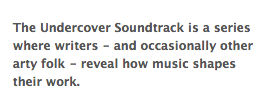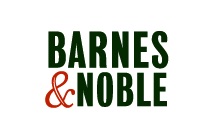PRESS
On the research behind Faint promise of rain
The moment I set foot into the studio, I was smitten. Jingling ankle bells, syncopated rhythms of the tabla (drums), precise footwork, lightning fast turns punctuated by perfect stillness. I attended every weekend, and after class, I would jot down new compositions and patterns so as not to forget them, making up my own system for recording what for generations had been an oral tradition. I tried to put on paper what my body was learning. It was a new form of research.
A tribute to hybrids, a different kind of "other"
“Hybrid” is a tricky term. Hybrids are different, unusual. Hybrids can be beautiful, efficient, economical, sustainable (and sustaining). But there is a risk in embracing such a term: hybrids can be viewed as fake, or engineered, somehow unnatural. When something is part this and part that, there’s a tendency for people to conclude that it is fully nothing. In fact, quite the opposite can be true.
Book Brahmin Interview
What drew me to Zola's works was his brilliant portrayal of Paris as more than just a setting for his stories, but rather a many-tentacled monster, a complex creature with appetites. I didn't realize it at the time, but these books ignited in me a fascination with networks, infrastructure and urban planning. Many years later, I recognized this interest and attended MIT for a master's degree in city planning. My experience there, the people I met, the neighborhood I lived in, all transformed my life.
The Undercover Soundtrack
From the moment I started writing the book, I was aware of the power of rhythm in writing. Word choice, sentence length, the sounds of the syllables on the tongue all contribute to the experience of absorbing a story. When it came time, in the manuscript, to convey through words a moment of dance, I found myself dancing the piece in my dining room, or in my head if I was writing in a cafe, willing the feeling of the music and movement to flow out of my body through my finger tips and into the keyboard. I tried to hear the musicality in the raindrops of the city’s first rain in five years, in the beat of hooves as a horse galloped over searing sand.
Q&A with Bloom
By the time I started officially conducting research for my book, I’d already read a lot about kathak and Indian history, but I did discover some elements that I hadn’t expected. One of them was the complexity of the behind-the-scenes world of the devadasis, the temple dancers, and the contrast between this world and their public personas. The same is true now of my research for my next book, which involves the world of kothas, or courtesan houses, in 19th-century Lucknow. There are parallels with the geisha world of Japan, in terms of the level of education, political acuity and independence these women had, despite the strict traditions that bound them.
Writing the non-Western past: The challenge of moving beyond the cliché and the exotic.
At the Kriti Festival of South Asian Arts & Literature recently, the same question kept rearing its irritating head: do we (in this case, writers of South Asian heritage) have a responsibility toward the culture we represent in our books and stories? Oy gevalt. (That’s my other heritage speaking.) The assumption most participants seemed to have was that yes, we do. The question they really seemed to be asking, with discernible concern in their voices, was how they should embrace this responsibility.
Alum books podcast
In a guidebook on Jaisalmer, one of the cities they visited, Duva came across an anecdote that struck her: since children would often live till age five without seeing rain, families used to paint clouds on the walls near each window to prevent them from being scared when rain eventually fell.
“I wrote it down…just to save it, because I thought it was beautiful. I just felt I wanted to bring it to life somehow.”
















